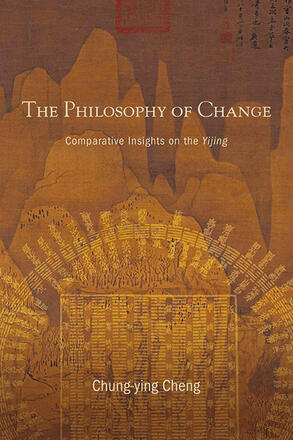
The Philosophy of Change
Comparative Insights on the Yijing
Alternative formats available from:
An analysis of the philosophy of the Yijing in comparison to modern Western philosophies.
Description
In The Philosophy of Change, the distinguished scholar of Chinese philosophy Chung-ying Cheng advances our understanding of the Yijing by analyzing its philosophy in comparison to Western philosophical traditions. Cheng focuses on critically comparing philosophies of science, religion, and metaphysics in Leibniz, Whitehead, Neville, and Cobb alongside classical Chinese views on reality, divinity, knowledge, and morality. The book begins and ends with questions related to the character of Chinese metaphysical traditions, which contrast with the mainline metaphysical traditions found in Western Europe and North America. Cheng argues throughout the book that the philosophical underpinnings of basic concepts in Chinese culture are ultimately rooted in key claims found within the Yijing 易經 and one of its standard commentaries, the Yizhuan 易傳. The book serves as a complementary volume to the author's previous book, The Primary Way: Philosophy of the Yijing, which lays out a comprehensive and systematic philosophy based on the symbolism and text of the classical document and its traditional commentaries.
Chung-ying Cheng is Professor of Philosophy at the University of Hawai'i. His many books include New Dimensions of Confucian and Neo-Confucian Philosophy and The Primary Way: Philosophy of Yijing, both also published by SUNY Press.
Reviews
"This book represents a landmark in Yijing studies, and its publication will affirm the status of the Yijing as a philosophical text, even though it began as a manual of divination. Cheng brings a fresh perspective to the Yijing's notoriously complex and complicated text. More importantly, he highlights its philosophical significance, comparing its philosophical system with those of the ancient Greeks and contemporary Western philosophers. In so doing, he globalizes the Yijing, making it accessible to readers around the world." — Tze-ki Hon, author of The Yijing and Chinese Politics: Classical Commentary and Literati Activism in the Northern Song Period, 960–1127
"Cheng demonstrates the central importance of the Yijing for Chinese and comparative philosophy, with penetrative investigations into a range of key ideas and topics. With deep knowledge of the philosophy of the Yijing and solid expertise in both Chinese and Western philosophical traditions, Cheng promises to refresh our vision on the contemporary significance of classical Chinese thought." — Huaiyu Wang, Georgia College & State University